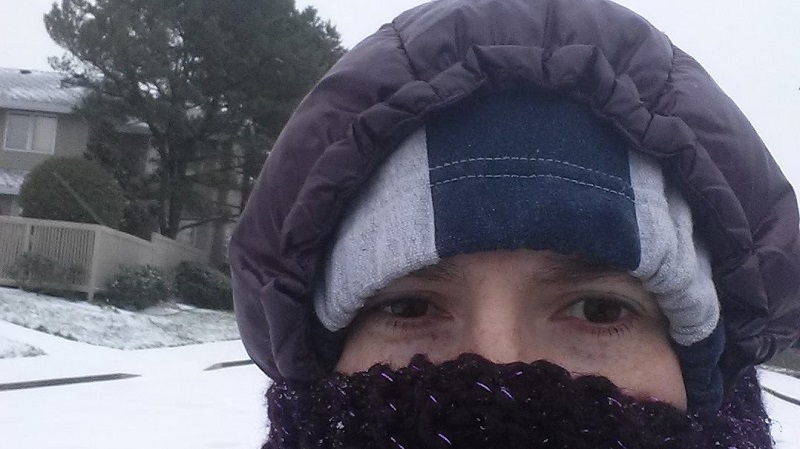I have been traumatized by snow ever since moving to Portland. I grew up in Michigan where snow wasn’t really a big deal. It snowed most of the winter, but since that was the norm, the city was built to deal with it. We had ample snow plows and systems in place to keep roads safe. At 3:00 a.m. on snowy mornings I’d often be woken up by the sound of the plows clearing driveways and streets, knowing we’d have school that day.

When it snows in Portland, the city shuts down. We don’t currently own a car with all-wheel drive, and we live at the bottom of two slightly sloping hills in our neighborhood, so when it snows, we’re stuck until it melts. The longest we’ve stuck at home was seven complete days, back when we had a 3-year-old and 3-month-old. To say it was traumatizing is an understatement. Now every time they predict snow, I run to the store to stock up on essentials (and then some) so we won’t be stuck without. My stomach ties in knots just thinking about the first flakes falling to the ground. The weird thing is on the few snowy days we have, I’ll still wake up in the middle of the night because I think I hear a snow plow whisk through our street, pushing a path to freedom.
Why do our brains do this? Why do certain smells or sounds trick us at our most vulnerable moments? I can’t explain the biology of it, but I can tell you this happens in the Torah too, especially in our parshah this week, Yitro.
The central piece of the portion is the giving of the Ten Commandments by God to Moshe and the people Israel. We now have a set of laws to live by, a guide to being a free people outside of slavery. But before the Torah gives us these laws, it reminds us of the family relationship Moshe has with his father-in-law and how he sets up a legal system. And the end encapsulates the experience of intensity of being at Sinai, but in an odd way.
Chapter 20, verse 15 reads, “All the people saw the thunder and the blare of the horn.” Why is the wrong verb used here? We don’t see thunder and hear lightning, we hear thunder and see lightning. Why the reversal? A common interpretation is that the experience was so intense and so overwhelming that their senses were all in a tizzy and they experienced something beyond what they knew as reality. And the key is it doesn’t matter if the thunder was actually visible in some miraculous way, only that it seemed that way to the Israelites. It’s not necessarily that the scrambling of the senses caused an intense experience, but perhaps that the intense experience caused the scrambling of the senses.
What a fitting reminder about this past year – the pandemic has our sense of reality and time all confused. How many times have you heard someone joke about not knowing what day it is or feeling like it’s the same day over and over again? The human mind is amazing at adapting and solving problems, but it can also trip us up and cause even more problems. Your trigger might not be snow flurries, but we can still rely on each other for the mental and emotional support we need as we plow ahead together.



